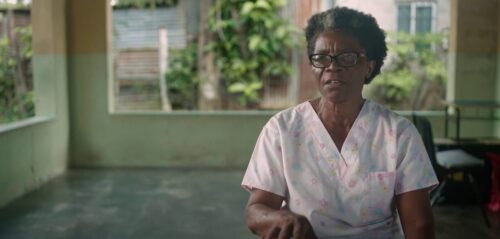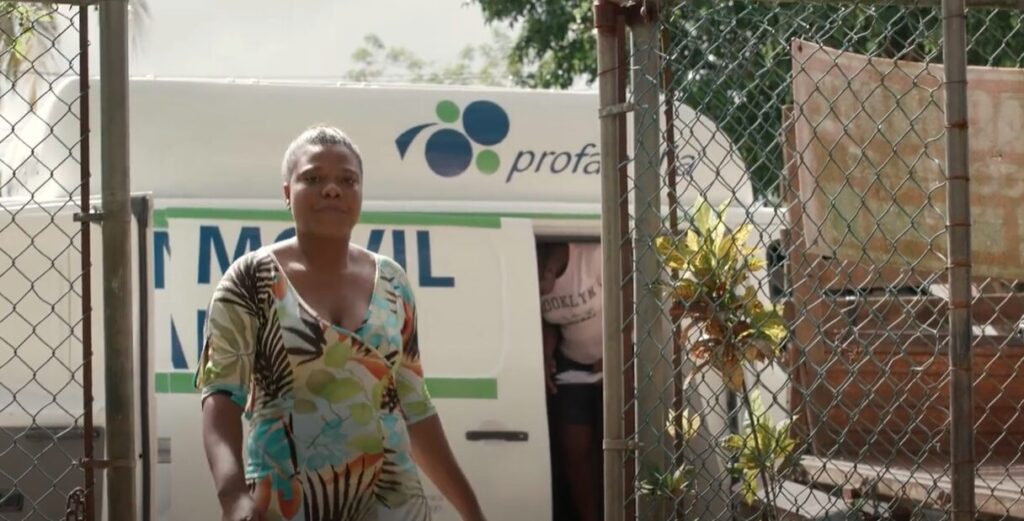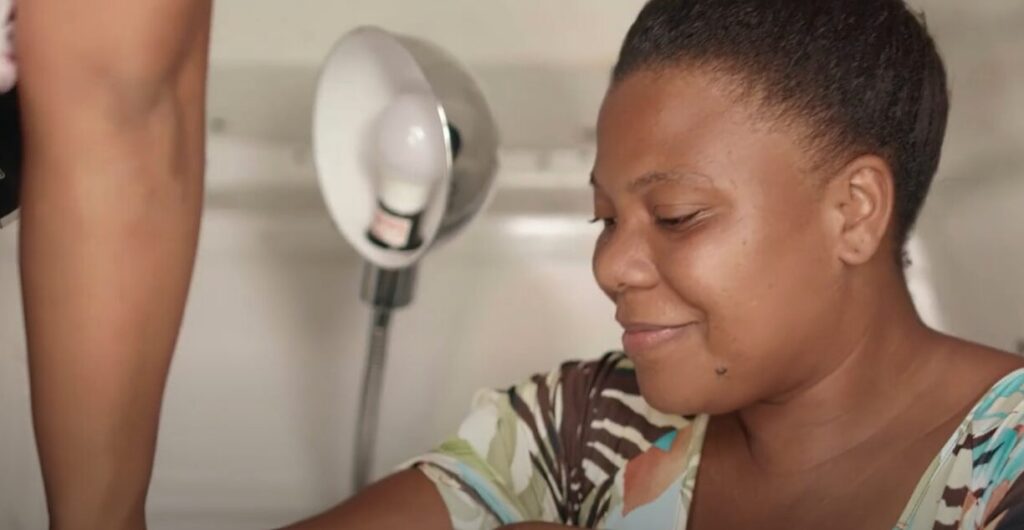
Stories
Transforming Generations: Community Health Promoters in the Dominican Republic
Leona Adolfo has been a community health promoter in the Mata Mamón batey, an area near the Dominican Republic capital of Santo Domingo, for 45 years now. Born and raised in a batey, Leona knew very well how hard it was to get access to medical care in communities like hers. Contraceptives, for example, were expensive and hard to find, and many women had to hide from their partners who felt threatened by their desire to decide if, when, and how many children they wanted to have.
Her experiences in the batey led Leona to volunteer with Fòs Feminista’s partner Profamilia in 1979, facilitating access to sexual and reproductive health information in her community. Witnessing the impact of her work as a health promoter, Leona went on to study nursing, and she has continued to collaborate with Profamilia ever since.

Like Leona, around half a million people currently live in bateyes — rural communities of Haitian immigrants or people of Haitian descent that were originally established around sugar mills. The decline of sugar production and the widespread oppression of Haitian people in the Dominican Republic have further marginalized bateyes, where many residents are undocumented and face multiple barriers in accessing basic needs like education and medical care.
As a leading gender equity and sexual and reproductive health organization in the country, Profamilia’s work in the bateyes is multipronged. Besides supporting the training of community health promoters that include young people engaged in peer education, Profamilia operates a mobile health unit that provides outpatient SRH services and information. To ensure that there is no financial barrier to access in-clinic care, Profamilia offers batey women and girls free-of-charge services.

For almost a decade now, Leona has been working in Profamilia’s mobile health unit, traveling from batey to batey to administer pap smears, contraceptive methods, and other types of sexual and reproductive healthcare services. Community health promoters play an important role in guaranteeing humane and confidential treatment for all, often in Haitian Creole. Leona learned to speak Creole as a child with her father, who immigrated from Haiti to the Dominican Republic in the 1940’s and with whom she also learned to care for others. “If you are able to help others, you should help them, expecting nothing in return,’ she says.
Leona wants to leave a legacy as “a fighter who fought for my batey communities.” She already has. The work of community health promoters in the bateyes is intergenerational, and the more women and young people are engaged, the more the community changes. That has been the experience of 24-year-old Laureni Sierra Tejeda, who participated in Profamilia’s youth capacity-building sessions. After she and others acted upon the SHRHJ skills they learned with Profamilia, Laureni noticed fewer adolescent pregnancies and infections in her community.
“A community with no access to education, where people grow up to get married and have children as soon as they become teenagers, is a community that will always struggle with poverty,” says Laureni.
She is committed to carrying on the legacy of community health promoters like Leona, and she is now building a different path for herself and her family as a Law student.
Watch the story: